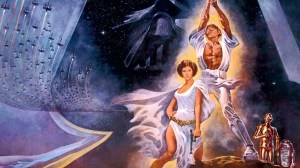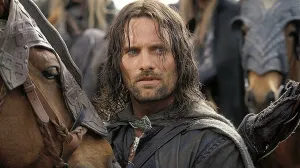Any Star Trek fan looking for a new way to enjoy the franchise while self-quarantining are in luck. The documentary What We Left Behind: Looking Back on Star Trek: Deep Space Nine is now streaming for free (with ad breaks) on the Tubi streaming service. The documentary is directed by Ira Steven Behr, Star Trek: Deep Space Nine‘s showrunner, and uses extensive interviews with cast and creators to consider the show and its legacy. The film released last year and ComicBook.com spoke to Behr, series stars Nana Visitor and Armin Shimerman, and producer Kai De Mello-Folsom about the documentary film.
Videos by ComicBook.com
The film also presents Star Trek: Deep Space Nine footage in HD for the first time anywhere. There’s also a segment where Behr reconvenes the Deep Space Nine writers’ room to consider what a hypothetical eighth-season of the series could look like.
In the documentary, Behr discusses how it was a struggle to get the higher-ups to allow the show’s serialized storytelling, a departure from Star Trek‘s traditionally episodic approach. In our chat with Behr, we asked what its been like to see Star Trek move more in the serialized direction with new series like Star Trek: Discovery.
“I only wish that at the time I would have been that convinced that we were ahead of the times and that it was all going to work out perfectly fine,” Behr said. “That definitely wasn’t the feeling. It just felt like a no-brainer to me. It’s like, here was this show, a show I did not create, but a show that was going to be handed to me, that from the very beginning Michael [PIllar] had told me that he was going to give the show to me. This is the show that was created by these other people, but the potential was there for so much more. Who in their right mind wouldn’t take it as far as they could take it?
“So it just seemed like it was a show that called out for serialization. That was the best way to tell these stories. We definitely didn’t want to do what [Star Trek: The Next Generation] had done and was doing. It was still on the air. And it’s like, we want to carve our own little path.
“So it was form and content. It was just finding the right form for the content. The form was serialization. It was a no-brainer in my mind. And the fact that it was not embraced by everyone, including the fans at times, was disappointing.
“I get the fact that syndication was a bitch, and that shows were on at all times of the day and night, and it was hard to follow when shows would get preempted for some dopey local thing. I get it, but I have no control over that. I can’t control the delivery system. All I could do is help to make the best Deep Space Nine series we could make. And that’s what I cared about. Not what happened after the show was out of our hands and how it was broadcast. It was like, I don’t care about that.”








